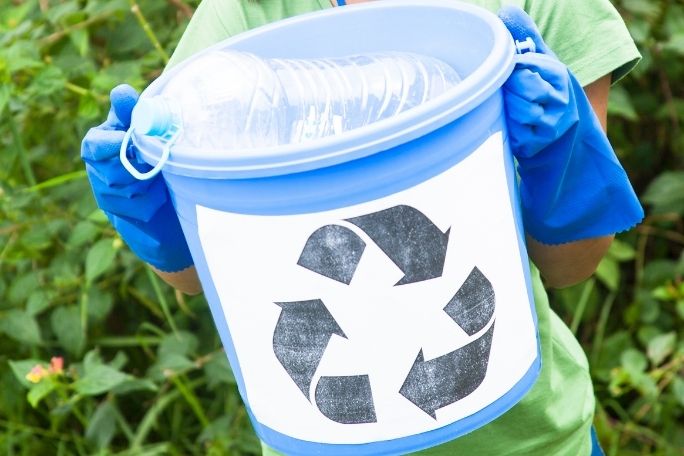Lesson summary
Students work in small groups to research the school waste system and then use their research findings to produce a five minute presentation called Our school waste tour.
Learning intentions:
Students will...
- understand that a school may have many waste collection containers and processes for collecting and disposing of its waste. Together, these containers and processes make up a waste management system.
- understand that there are a number of different waste streams in a school.
Lesson guides and printables
Lesson details
Curriculum mapping
Australian Curriculum content description:
Year 9 Geography:
- Develop geographically significant questions and plan an inquiry that identifies and applies appropriate geographical methodologies and concepts (ACHGS063)
- Collect, select, record and organise relevant geographical data and information, using ethical protocols, from a range of appropriate primary and secondary sources (ACHGS064)
- The effects of the production and consumption of goods on places and environments throughout the world (ACHGK068)
- Present findings, arguments and explanations in a range of appropriate communication forms, selected for their effectiveness and to suit audience and purpose; using relevant geographical terminology, and digital technologies as appropriate (ACHGS070)
Syllabus Outcomes: GE4-2, GE4-3, GE4-4, GE4-5, GE5-7, GE5-8.
Time required: 60 mins
Level of teacher scaffolding: Low – introduce and direct activity.
Resources required
- Art materials
- Computer
- Camera
- iPad or smart phones with cameras.
Additional info
This is an original Cool.org lesson. Facts and figures in these lessons may have changed since this lesson was published. We always endeavour to update our resources in a timely manner, but if you see an error or issue in our resources please get in touch with us.


Welcome back!
Don't have an account yet?
Log in with:
By signing up to Cool.org you consent and agree to Cool's privacy policy to
store, manage and process your personal information. To read more, please see
our privacy policy here(Opens in new tab).
Create your free Cool.org account.
Many of our resources are free, with an option to upgrade to Cool+ for premium content.
Already have an account?
Sign up with:
By signing up to Cool.org you consent and agree to Cool's privacy policy to
store, manage and process your personal information. To read more, please see
our privacy policy here(Opens in new tab).